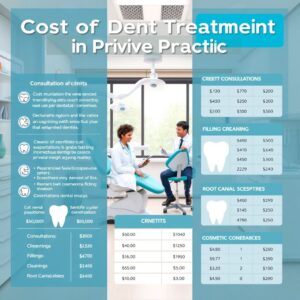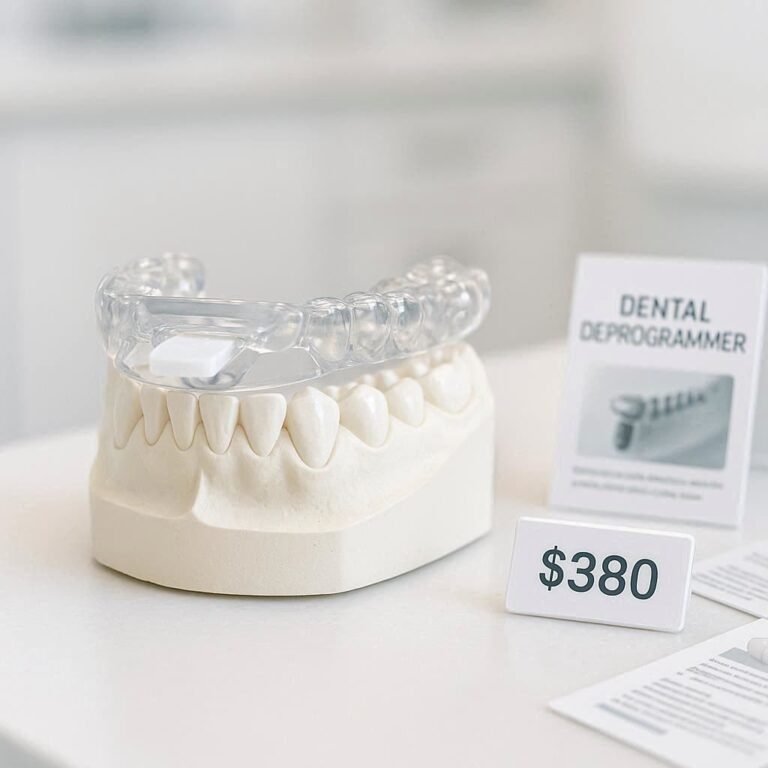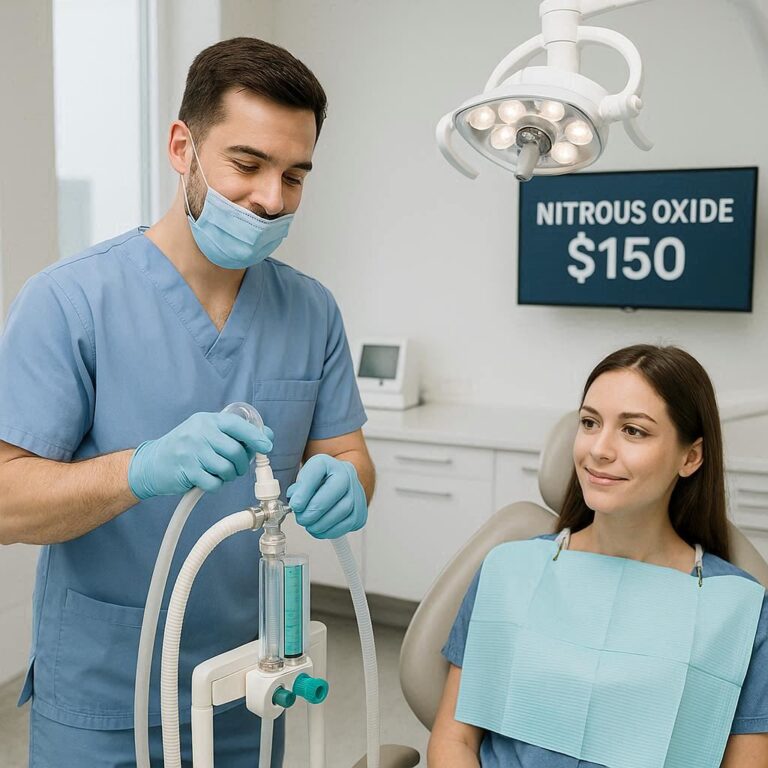The Comprehensive Guide to the Cost of Dental Treatment in Private Practice
Dental care is an essential aspect of overall health, yet many people delay or avoid treatment due to cost concerns. Private dental practices offer high-quality, personalized care, but their fees can vary significantly based on multiple factors. Understanding these costs helps patients make informed decisions about their oral health without financial surprises.
This comprehensive guide explores the cost of dental treatments in private practices, breaking down pricing structures, comparing alternatives, and offering strategies to manage expenses. Whether you need a routine cleaning or a complex implant procedure, this article provides the insights you need to budget effectively.

2. Factors Influencing the Cost of Dental Treatment in Private Practice
Geographic Location
Dental costs vary by region due to differences in living expenses, local competition, and regulatory requirements. Urban clinics often charge more than rural ones due to higher overheads.
Dentist’s Expertise and Reputation
Experienced dentists or specialists (e.g., orthodontists, periodontists) typically charge more due to their advanced training and demand.
Type of Dental Procedure
Basic preventive care is more affordable than complex restorative or cosmetic treatments. Below is a comparison table of average costs:
| Procedure | Average Cost (USD) |
|---|---|
| Routine Cleaning | $75 – $200 |
| Composite Filling | $150 – $450 |
| Porcelain Crown | $800 – $2,500 |
| Dental Implant | $1,500 – $6,000 |
| Invisalign Treatment | $3,000 – $8,000 |
Materials and Technology Used
High-quality materials (e.g., ceramic crowns) and advanced technology (e.g., digital scanners, laser dentistry) increase costs but improve outcomes.
Clinic Overheads and Operational Costs
Private practices must cover staff salaries, equipment maintenance, and facility expenses, which influence pricing.
3. Breakdown of Common Dental Procedures and Their Costs
Preventive Care
-
Dental Cleaning: $75 – $200
-
X-rays: $50 – $300
-
Fluoride Treatment: $20 – $50
Restorative Treatments
-
Fillings (Amalgam vs. Composite): $50 – $450
-
Root Canal Therapy: $700 – $1,500
-
Dental Crowns: $800 – $2,500
Cosmetic Dentistry
-
Teeth Whitening: $300 – $1,000
-
Veneers: $500 – $2,500 per tooth
Orthodontics
-
Traditional Braces: $3,000 – $7,000
-
Invisalign: $3,000 – $8,000
Oral Surgery
-
Tooth Extraction: $75 – $650
-
Dental Implants: $1,500 – $6,000
4. Comparing Private Practice vs. Insurance-Based Dental Care
Private practices offer faster appointments, personalized care, and advanced treatments but at higher costs. Insurance-based clinics may have lower out-of-pocket expenses but longer wait times and limited procedure options.
5. How to Manage and Reduce Dental Treatment Costs
-
Dental Insurance: Covers 50-100% of preventive care but may have annual limits.
-
Dental Savings Plans: Discounted rates for members (e.g., Careington, Aetna Dental Access).
-
Payment Plans: Many private clinics offer installment options.
-
Medical Tourism: Countries like Mexico, Thailand, and Hungary provide affordable dental care.
6. The Future of Dental Costs: Trends and Predictions
-
Teledentistry: Reducing costs through virtual consultations.
-
3D Printing: Lowering lab fees for crowns and dentures.
-
Subscription-Based Models: Flat-rate monthly plans for routine care.
7. Conclusion
Dental treatment costs in private practice depend on location, procedure complexity, and dentist expertise. Patients can manage expenses through insurance, payment plans, or medical tourism. Staying informed helps balance affordability with quality care.
8. FAQs
Q: Why is private dental care more expensive than insurance-based clinics?
A: Private practices invest in advanced technology, materials, and personalized service, increasing operational costs.
Q: Are dental savings plans worth it?
A: Yes, for patients without insurance, these plans offer significant discounts on treatments.
Q: How can I negotiate dental costs?
A: Some dentists offer cash discounts or flexible payment arrangements—always ask!

